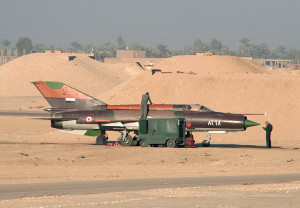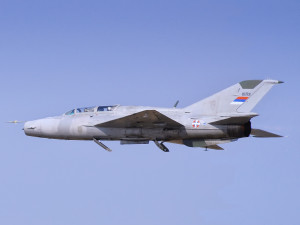
War, political survival and elections have always been interrelated. As Carl von Clausewitz said in On War: “WAR IS ONLY A CONTINUATION OF STATE POLICY BY OTHER MEANS” … but there is a disturbing undertone to this particular incident; one that suggests that, regardless of all the tub-thumping about Syria, Iraq, Afghanistan and now Ukraine, it may have been Turkey which has been in the crosshairs of US policy in Eurasia all along.
A tangled web
Not since the 17th Century, when the Ottomans entered into strange alliances of convenience with the British and French, have things been as confused as they are now in the Middle East, a geographical term which is a Western invention to start with. Who is supporting whom, for what reason and how long these relationships will last is now anyone’s guess. The pattern of alliances is more complex now than it was during the long years of civil war in Lebanon – which itself ended because nobody knew who they were fighting against anymore.
The Middle East and its littoral have always been a battleground between outside forces, as the regional powers are not permanent members of the UN Security Council and thus have little effective global power of their own. They would soon be made members if they had. But previously it was easy to see who was sponsoring which government or opposition group in which country, as trade, diplomatic and arms supply links and ideological similarities tended to demonstrate each combatant’s Western, Eastern or “favoured friend” orientation.
However the situation has now been complicated by the ongoing economic and financial malaise in the US, EU and many parts of the so-called developed West. States which demand, and wish to retain, geopolitical influence, need to continually back up their assumption that they have the right to it with financial and diplomatic muscle. But not only are the traditional powers enduring prolonged economic downturns but their political, as well as economic, hegemony is being seriously threatened by rising powers such as China and India.
These countries run their economies, and play the international relations game, according to their own rules which they play better than the West. They do not see any reason to give up the competitive advantages this gives them by dismantling their systems in order to play by Western rules.
Consequently the traditional giants have to find innovative ways to assert themselves. For the developed West, carving out spheres of influence in other countries is no longer an extension of power relations but a replacement for them. Far greater effort is now being made to gain any compliant ally, no matter who they are or what trouble this relationship might cause.
When the developing countries show the West their money the West will show them its influence, real or imagined, in every corner of the globe. Then it will claim this will eventually trump the economic success of the brazen newcomers daring to rewrite the rule book, though we will see if that is the case.
The situation in Turkey
Turkish Prime Minister Recep Tayyip Erdogan is facing an uphill battle to stay in office, besieged by corruption and sex scandals. The local elections next week will decide not only his fate but the direction of the country at large. His attempts to ban Twitter, and most recently Youtube, in the run up to these elections are being seen as a lame attempt to muzzle dissent and cling onto power at any cost, and thus a sign of extreme weakness.
The Justice and Development Party (AKP) which Erdogan leads is a misnomer. Its policies have little to do with justice and development, and many pundits and electors see it as a force which is trying to drag Turkey “kicking and screaming” back to the days of the Ottoman Empire, the Sick Man of Europe which modern Turkey was founded to sweep away.
The number of journalists currently locked up, and the ongoing crackdown on the media, are both appalling and just the tip of the iceberg. Even US-based organisations like Freedom House, which tend to interpret such things very differently in US allies than they do in less friendly states, have documented the extent of state interference in the mass media in this NATO member country. But actions such as shooting down another country’s plane for violating your airspace transform repression into toughness.
The pattern emerging

Meddling with the internal conflict in Syria, whether by accident or design, may well engulf Turkey in a larger conflagration which has the potential to burn the larger region, and divide Turkey itself. Dividing Turkey, of course, does not mean simply creating new borders. It means that each of the traditional powers currently losing ground to the emerging nations will have its own sphere of influence designed to maintain its global importance. Does anyone see a pattern here?
Ukraine regained its independence as one country. It may have had two distinct populations, Ukrainian speaking and Russian speaking, but they all professed allegiance to one Ukraine, not separate countries for their populations alone. Such has been the international effort to portray every dispute there as West versus East, regardless of what as being said, that following the Crimean referendum there will soon be two Ukraines, one Western and one part of Russia. Each will depend for support on a big power to justify their existence, thus the big powers will justify their own.
In Yugoslavia the same communities lived alongside each other for centuries, regardless of who ruled who within what political configuration – and regardless of what nationalists of any persuasion demanded. The Western powers actually took little notice of what any side wanted unless it was seen as being in the opposite geopolitical camp. This is why Tito’s state was perceived as being less oppressive after his break with Stalin in 1948. If Yugoslavia wasn’t really one of them, it couldn’t really be as bad, the thinking went.
Now Yugoslavia is several countries, each still inhabited by people of many communities despite the devastating wars conducted there, and each of these small states defines itself by its friends to demonstrate it is not the other states, and therefore has a right to exist. Still no one takes any notice of hem, as they have slipped out of view since independence. But every power has their pet state, and particular friends within that state, so everyone is happy.
The Middle East is effectively divided into more countries than appear on the map, with groups which have used terror tactics controlling large swathes of territory in each of its recognised states. Each of these has a big power sponsor, though usually not the same one for any length of time. The US is currently trying to oust President Assad, at other times an ally. But now it is losing ground militarily and in the battle for hearts and minds. Its only way of avoiding a second Vietnam is to create two or more Syrias, each run by a different group, as happened in Lebanon at one point. Once again, this action will be more about the US and its friends than resolving any problems in Syria itself.
So why Turkey – and why now?
Turkey has been a strategic US ally for a long time. This is a natural position to take, given its secularist but anti-communist stance. Any other alliance would threaten the entire basis of the state, as all around its borders it rubs up against tradition of one form or another, Islamic or nationalist, which could quickly subsume a country which has tried to rise above such things but failed to create a viable alternative.
Erdogan and his party realise that tradition means more than other Turkish rulers dare admit. They openly court Islamic and nationalistic elements and revere the past Ataturk tried to sweep away. This makes them not merely different but “on the other side”. As Islamic and nationalist as Assad, as repressive as Yanukovych, as xenophobic as the Serbs.
So how can Turkey defend itself and its government remain in power? Get tough, lock up journalists, ban social media, and shoot down planes. Exactly what the West wanted it to do to give it an excuse. All these actions may be distractions, but from what? Is this a scandal or not, or the fact that Turkey appears to so naïve so not expect to be the next target for the Balkan Treatment?
Turkey is another emerging power in its own right which plays by its own rule book. The conflicts and carve ups created elsewhere have been the modern day application of the Domino Effect. No one could admit that this strategic ally was next on the list. Events elsewhere have created sufficient precedent to do what would be diplomatically impractical any other way.
The scene is set for the country to be broken up into the usual divisions of influence between the declining great powers. That is what Erdogan wants to distract everyone from. Win or lose the elections, the future is now out of his hands. So he is trying to go out in a blaze of glory, if anyone will notice while his country burns around him.
Seth Ferris, investigative journalist and political scientist, expert on Middle Eastern affairs, exclusively for the online magazine “New Eastern Outlook”.
